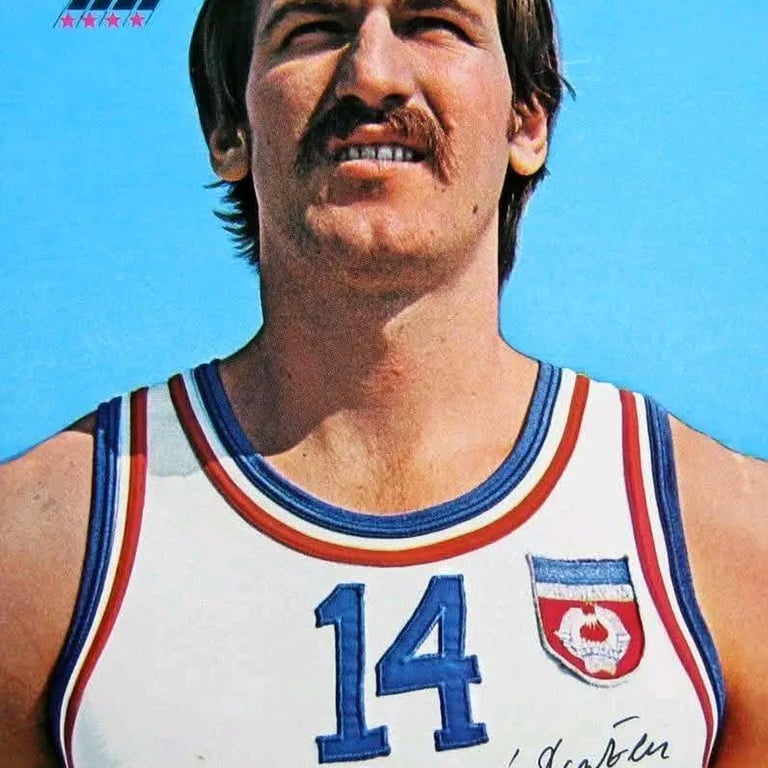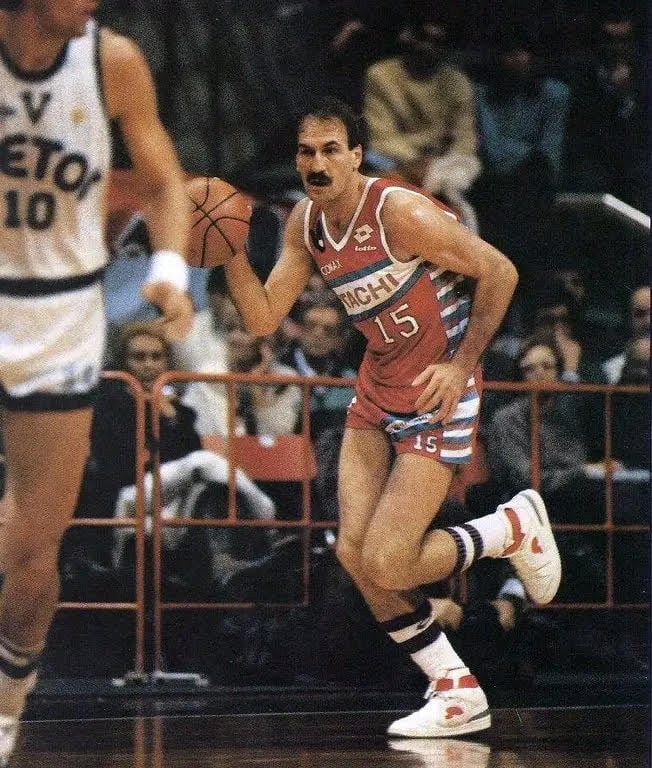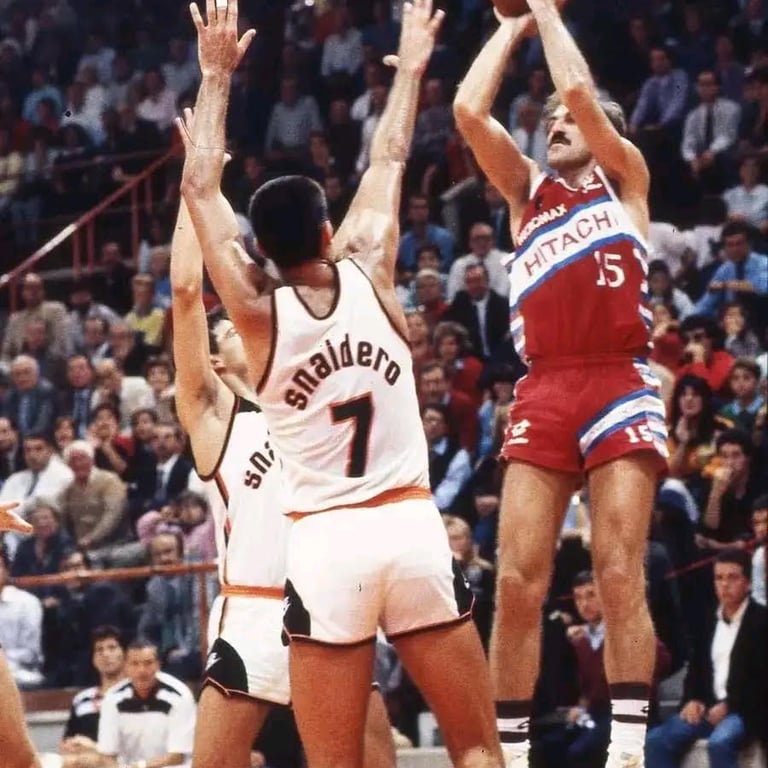
Dražen Dalipagić
The legendary "Praja"l
RETROPLAYERS
Antreas Tsemperlidis
4/10/20255 min read
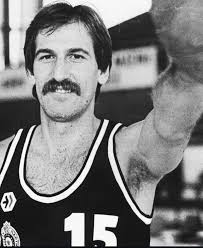

Imagine you have a crossword puzzle in front of you. For instance, at 15 across the clue might read: "Famous former Yugoslav basketball player. First name Dražen." Let’s be honest, Petrović would be the first name to come to mind. However, by doing so, we’d be unfair to another legendary namesake of his, no other than the "Flying" Dražen Dalipagić.
One of the greatest players and lethal scorers in European basketball history, the legendary "Praja" left an indelible mark, mainly with the Yugoslav national team in terms of titles, though his club career, despite record-breaking scoring performances, didn’t see similar success. Unlike his contemporaries in the golden Yugoslav squad of the 1970s, Dalipagić didn’t start playing basketball at a young age, nor was he targeted by the major teams in the Yugoslav league. For him, the sport was purely a hobby, and he didn’t even consider pursuing a basketball career. That’s why Dražen "Praja," born on November 27, 1951, in Mostar, was studying at the University of Belgrade when he received an invitation to join a mixed team from Bosnia and Herzegovina for a tournament against teams from other Yugoslav republics. So, it was during the summer of 1970, in the presence of national team coach Ranko Žeravica, 19-year-old "Dali" that stunned all the coaches, who were left wondering who this unknown youngster dominating established Croatian and Serbian players was. All, except for Žeravica, the "fox of the benches." Already a World Champion, Žeravica had done his homework on "Praja" and, upon taking over Partizan Belgrade in the fall of 1971, made him his first priority.
Partizan Belgrade was in a transitional phase. At the end of the 1970-71 season, the team was relegated to the second division. However, a regulatory change reinstated them to the top league, and Žeravica’s appointment laid the groundwork for the club’s establishment among the elite. Dalipagić made his Partizan debut with a slight delay. The reason? A pre-contract he had signed with Yugoplastika, the reigning champions, before Žeravica’s intervention. Consequently, the Yugoslav Basketball Federation suspended him for six months, which Žeravica managed to reduce to a few weeks. Dalipagić scored only three points in his debut, but they were the first of the thousands to come.
As of the following season, "Dali" began scoring at a rate of a machine-gun. However, the championship title took a few years to arrive. It wasn’t until the arrival of his alter ego, Dragan Kićanović, that Partizan finally claimed the championship in 1976, along with Dalipagić topping the scoring charts. The magical duo of Dalipagić and Kićanović also became the backbone of the Yugoslav national team’s stellar lineup in the 1970s. Mirko Novosel, who succeeded Žeravica as national team coach, carried over their Partizan partnership into the national squad, complemented by veterans Krešimir Ćosić, Mirza Delibašić, and "Moka" Slavnić. Together, these five players led Yugoslavia to dominance: three consecutive EuroBasket titles (1973, 1975, 1977), a World Championship in 1978 (silver in 1974), and an Olympic silver medal in Montreal in 1976. Dalipagić’s scoring averages improved steadily in every tournament, reaching 23 points per game at the 1978 World Championship in the Philippines. Following the World Championship triumph, Dalipagić served his military duty, missing the entire 1978-79 season and the chance for another championship and a European title. In his absence, Partizan successfully defended the Korać Cup, which they had won the previous year in a Yugoslav "civil war" final against Bosna Sarajevo, led by Delibašić. Dalipagić scored 48 points in that final, giving Žeravica a farewell worthy of his legacy.
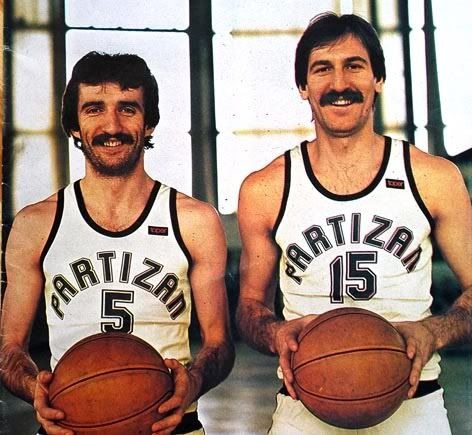

However, it was time for Dalipagić to seek new challenges. This time, he didn’t turn down an offer from Reyer Venezia as he had done in 1976 when the Boston Celtics invited him for a two-week trial at their summer camp. Thrilled by "Praja," the Celtics offered him a guaranteed five-year contract, a move unheard of for a European time at the time. However, Dalipagić declined, forfeiting the chance to become the first European to play in the NBA. The reason for his refusal was FIBA’s absurd regulations, which considered players in the U.S. professionals, thereby barring them from participating in its competitions and hence their national team. Having turned down the NBA, Italy -the El Dorado of European basketball- became his next destination. He arrived in Venice as an Olympic gold medalist and Europe’s best basketball player. While he sought to bring a trophy to the city of the Doges, he lost the Korać Cup final to Joventut Badalona. Surprisingly, he returned to Partizan in the summer of 1981, and as the league’s top scorer, he led his young Belgrade team to the final, wher Cibona proved to be the superior team. Similar to the domestic finals, the Soviet Union was also better in the EuroBasket final, prompting Dalipagić to transfer to Real Madrid, where he played only in the Cup Winners’ Cup games, reaching the semifinals. He then returned to his beloved Italy, where he continued doing what he did best –scoring- first with Udine and then again with Venice. His performances were extraordinary. For three seasons, his scoring averages exceeded 30 points per game, and on January 25, 1987, at age 36, he scored a staggering 70 points against Virtus Bologna and its defensive powerhouse Marty Byrnes. As Sandro Gamba later said, "Even if he had shot with his feet, the ball would have gone in."
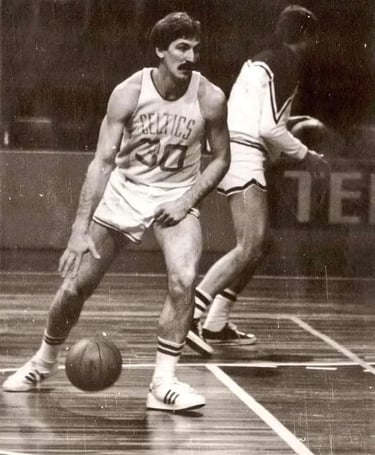

His remarkable displays in what was then Europe’s toughest league sparked discussions about a possible return to the national team, from which he had retired after Yugoslavia’s third-place finish at the 1986 World Championship. Though Ćosić considered recalling him, Dalipagić firmly dismissed the idea. When he finally hung up his national team jersey with the number 14, he did so as a holder of twelve medals from major tournaments and as the all-time leading scorer for Yugoslavia with 3,700 points, a record that will forever stand since Yugoslavia no longer exists. Dalipagić’s final appearances on Yugoslav soil came not in the jersey of his beloved Partizan but surprisingly in that of their eternal rival, Red Star. Approaching his 40s, he proved that scoring is like riding a bike-once you have it you never forget it.
He retired from basketball in 1991 at age 40, finishing as the fourth-leading scorer of the last united Yugoslav league, behind three players (Komazec, Paspalj, and Kukoč) who could have been his children. Yet, he left an indelible mark on the sport’s history. Dalipagić’s game was, in the coldest terms, about scoring. Ćosić was undoubtedly more talented, Kićanović more clutch, Slavnić more versatile, and Mirza an artist. But "Dali" mastered the fondamentals. He was the first European basketball player to execute the pick-and-roll so effectively, with his stay in America surely playing a role in this. He was also physically gifted, leveraging his incredible vertical leap to earn the nickname "The Sky Jumper" from journalists of the time.
For his compatriots and basketball lovers across Europe, he had everything it took to play and excel in the NBA. As Mirza Delibašić once rather excessively remarked, "I don’t understand why Bird, who only had a jump shot and couldn’t jump over a newspaper, is considered better than Praja, who was a phenomenal shooter and could jump to the heavens." Exaggeration? Certainly. But who can blame him? That’s the joy of basketball, scoring and spectacular plays. And Dalipagić delivered both in a magical way.
With one of his infamous leaps in January 25 this year, Dalipagić joined Mirza, reaching closer to God...
